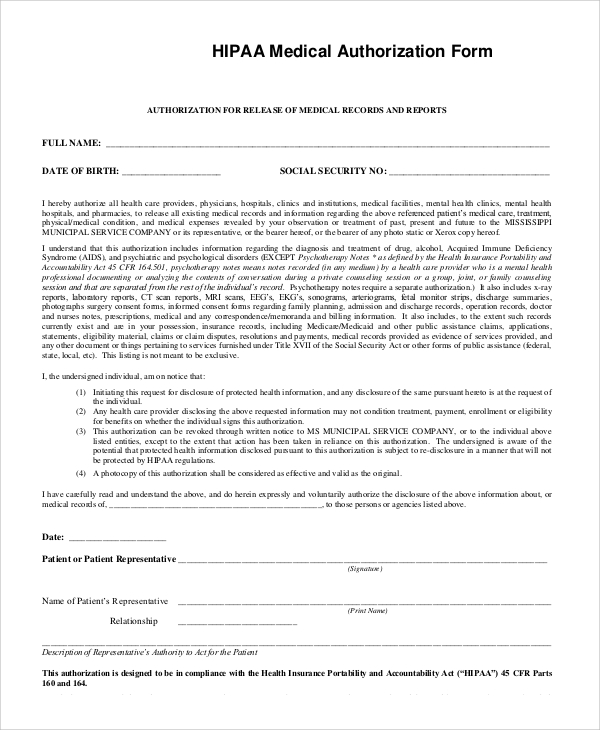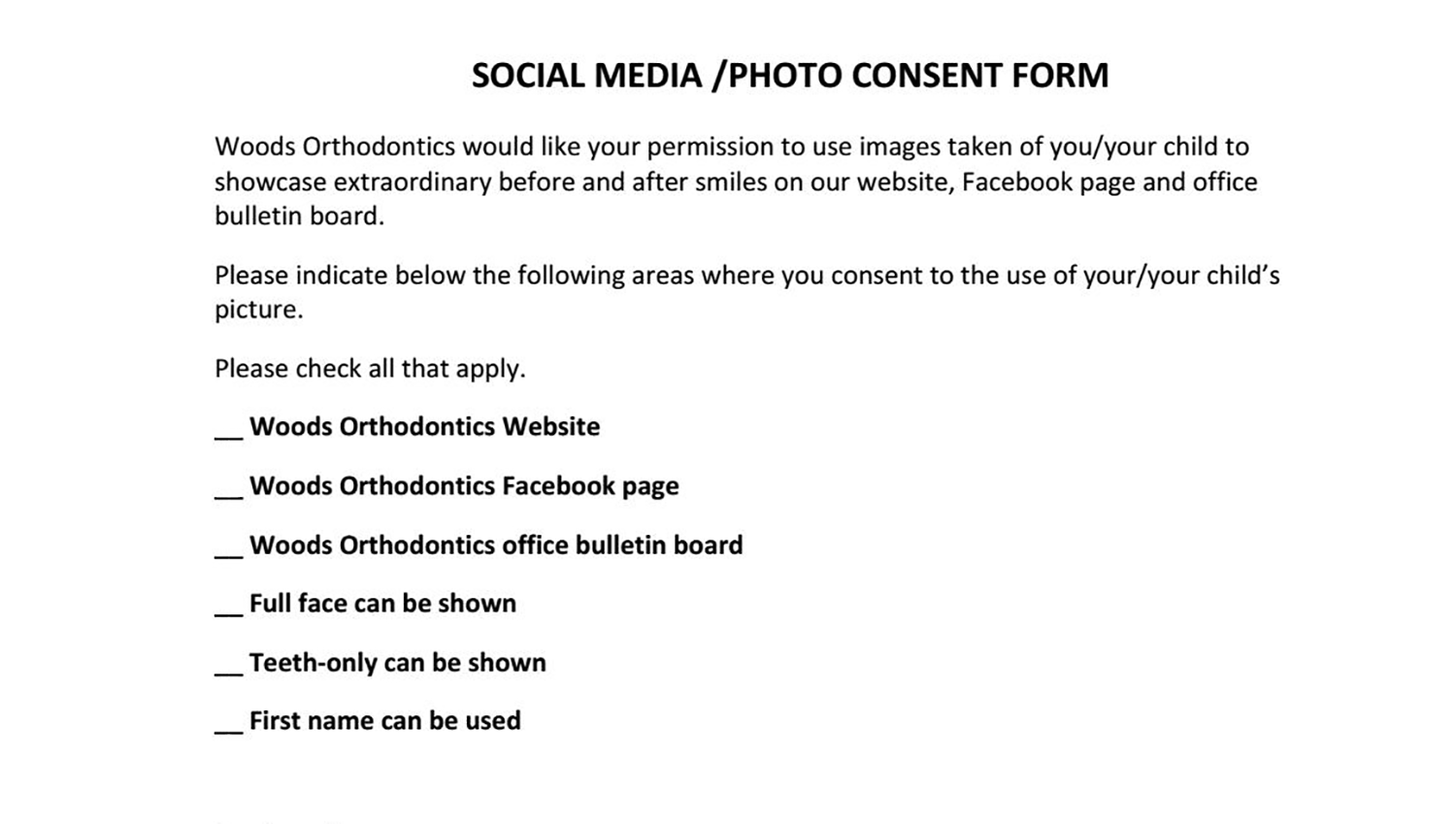

- #MEDICAL OFFICE HIPAA COMPLIANCE FORMS HOW TO#
- #MEDICAL OFFICE HIPAA COMPLIANCE FORMS DOWNLOAD#
“At the request of the individual” is a sufficient statement of purpose.
A description of the information that you will use or disclose and the purpose of it. use or disclose PHI for any reason not allowed by HIPAA, orĪ: You must write the form in plain language and include the following parts:. use or disclose substance use disorder and treatment records,. use or disclose psychotherapy notes, except for TPO purposes,. use or disclose PHI for research, unless they have waived authorization for this purpose,. use or disclose PHI for marketing, except if it takes place one-on-one between your organization and the person or if it’s a small promotional gift,. A signed form gives your organization permission to use the patient’s PHI or disclose it to another person or entity. Q: What is an authorization form, and when should I use one?Ī: A HIPAA authorization form represents an agreement between a patient and a HIPAA-covered organization. In all other cases, you can’t use their PHI unless you first get a signed authorization form. disclosing to the secretary of HHS Office for Civil Rights,. For instance, you can use and disclose PHI for treatment, payment, and healthcare operations (TPO). Q: When is HIPAA authorization NOT required?Ī: In some cases, you don’t need patient authorization to use and disclose their protected health information (PHI). Department of Health and Human Services (HHS). Stick around to the end to download a sample HIPAA authorization form from the U.S.
Do I need the original copy, and do I need to get it notarized?. How long is it valid, and when does it become defective?. What is an authorization form, and when do I need it?. This post will answer a few crucial questions about HIPAA authorizations: Maybe you, like many others, feel uncertain about the specifics. 
So, you must know how to get an authorization correctly. Without it, using and disclosing a patient’s medical record would violate HIPAA and could result in hefty fines or prosecution. With a patient’s authorization, you have permission to use and disclose their medical record according to the agreement. However, it’s key to maintaining patients’ right to their private medical information. It does not also have to give separate notices to spouses and dependents.Getting patient authorization can feel like a hurdle in your daily workflow.

It must also send a reminder at least once every three years that you can ask for the notice at any time.Ī health plan can give the notice to the “named insured” (subscriber for coverage). If an organization has a website, it must post the notice there.Ī health plan must give its notice to you at enrollment. The notice must also be posted in a clear and easy to find location where patients are able to see it, and a copy must be provided to anyone who asks for one. In an emergency, you should receive notice as soon as possible after the emergency. You’ll usually receive notice at your first appointment. When and how can I receive a Notice of Privacy Practices?
How to contact the organization for more information and to make a complaint. Your privacy rights, including the right to complain to HHS and to the organization if you believe your privacy rights have been violated. The organization’s duties to protect health information privacy. It must also explain that your permission (authorization) is necessary before your health records are shared for any other reason How the Privacy Rule allows provider to use and disclose protected health information. If you refuse to sign the acknowledgement, the provider must keep a record of this fact.  Refusing to sign the acknowledgement does not prevent a provider or plan from using or disclosing health information as HIPAA permits. Signing does not mean that you have agreed to any special uses or disclosures (sharing) of your health records. The law does not require you to sign the “acknowledgement of receipt of the notice.”. The law requires your doctor, hospital, or other health care provider to ask you to state in writing that you received the notice. In most cases, you should receive the notice on your first visit to a provider or in the mail from your health plan. It must also include your health privacy rights. Your health care provider and health plan must give you a notice that tells you how they may use and share your health information. YouTube embedded video: HHS OCR - Explaining the Notice of Privacy Practices What is the HIPAA notice I receive from my doctor and health plan?
Refusing to sign the acknowledgement does not prevent a provider or plan from using or disclosing health information as HIPAA permits. Signing does not mean that you have agreed to any special uses or disclosures (sharing) of your health records. The law does not require you to sign the “acknowledgement of receipt of the notice.”. The law requires your doctor, hospital, or other health care provider to ask you to state in writing that you received the notice. In most cases, you should receive the notice on your first visit to a provider or in the mail from your health plan. It must also include your health privacy rights. Your health care provider and health plan must give you a notice that tells you how they may use and share your health information. YouTube embedded video: HHS OCR - Explaining the Notice of Privacy Practices What is the HIPAA notice I receive from my doctor and health plan?








 0 kommentar(er)
0 kommentar(er)
